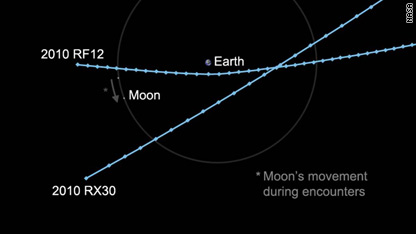U
uberhund
Guest
Whatever. We're debating slideware here.
Meanwhile, Earth was served notice yesterday that there are more urgent issues on the table.
While the US still has some semblance of an economy, wouldn't it be better to divert resources from pointless HSF and put them into a response to the graphic below? Squandering resources on manned lunar exploration moves the planet no closer to a protection plan, and is therefore irresponsible.

Meanwhile, Earth was served notice yesterday that there are more urgent issues on the table.
While the US still has some semblance of an economy, wouldn't it be better to divert resources from pointless HSF and put them into a response to the graphic below? Squandering resources on manned lunar exploration moves the planet no closer to a protection plan, and is therefore irresponsible.



